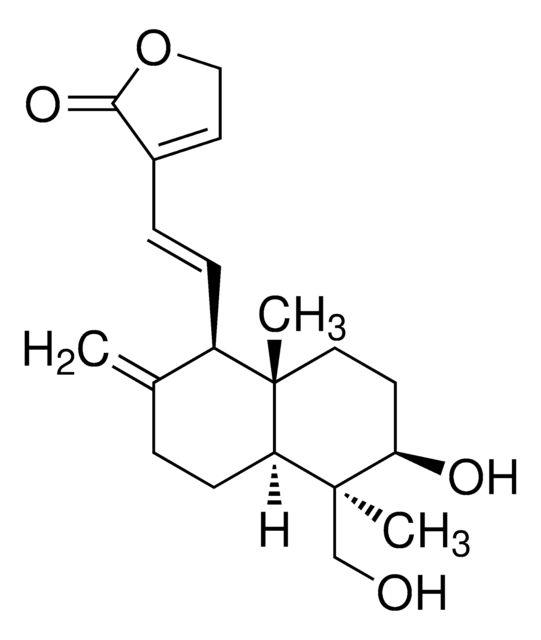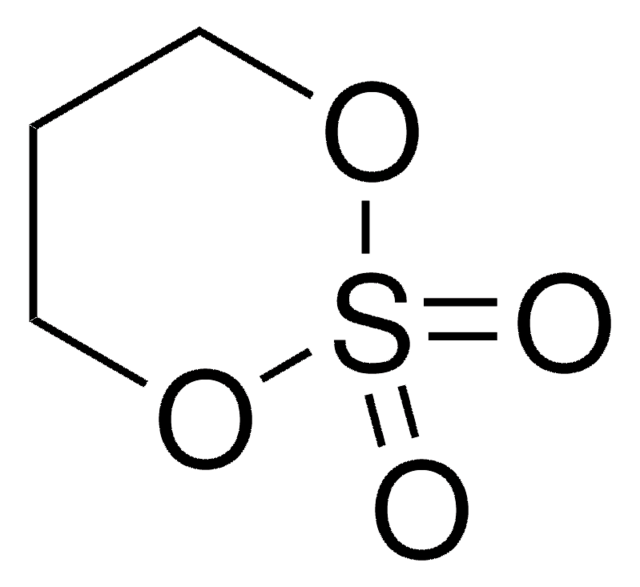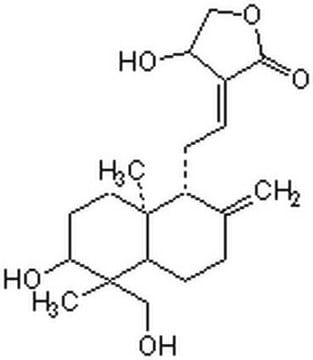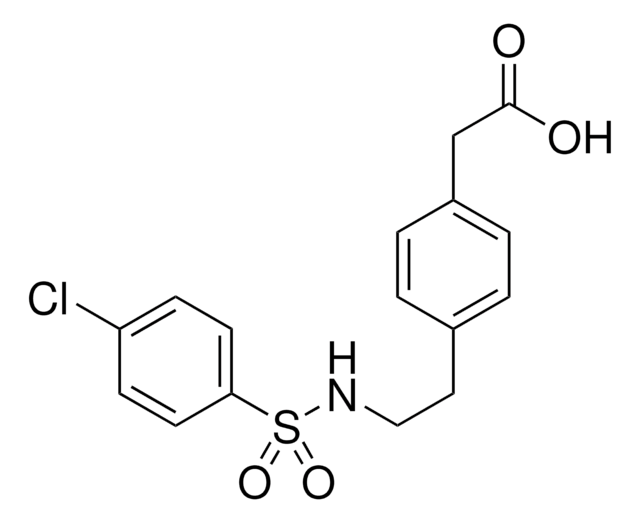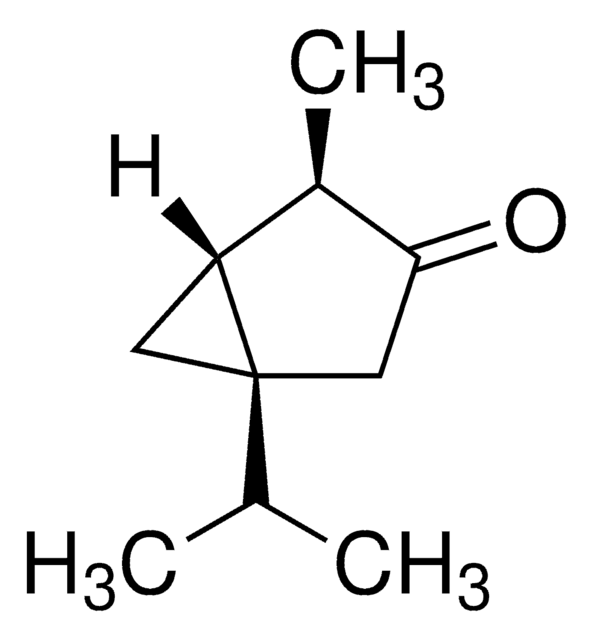365645
Andrographolide
98%
Synonym(s):
3-dehydroandrographolide, Andrographis, Andrographiside aglycon
About This Item
Recommended Products
Quality Level
Assay
98%
form
powder
optical activity
[α]20/D −126°, c = 1.5 in acetic acid
mp
229-232 °C (lit.)
functional group
ester
hydroxyl
SMILES string
C[C@@]1(CO)[C@H](O)CC[C@@]2(C)[C@H](C\C=C3/[C@H](O)COC3=O)C(=C)CC[C@H]12
InChI
1S/C20H30O5/c1-12-4-7-16-19(2,9-8-17(23)20(16,3)11-21)14(12)6-5-13-15(22)10-25-18(13)24/h5,14-17,21-23H,1,4,6-11H2,2-3H3/b13-5+/t14-,15-,16+,17-,19+,20+/m1/s1
InChI key
BOJKULTULYSRAS-OTESTREVSA-N
Looking for similar products? Visit Product Comparison Guide
General description
Application
- Andrographolide-based drug candidate against Keap1-Nrf2 pathway through rigorous cheminformatics screening.: This study identifies potential andrographolide derivatives as innovative drug candidates that target the Keap1-Nrf2 pathway, crucial for antioxidant defense mechanisms. This approach highlights the compound′s versatility in developing treatments that could mitigate oxidative stress-related diseases, making it a significant area of interest for chemists and material scientists in both academia and biotech sectors (Jain and Sudandira Doss, 2023).
- TMT-based quantitative proteomics reveals the targets of andrographolide on LPS-induced liver injury.: This investigation into the proteomic changes induced by andrographolide in liver injury models offers insights into its therapeutic mechanisms, highlighting its potential as a treatment for inflammation and liver diseases, relevant for research and development in pharmaceutical and biochemical fields (Ge et al., 2023).
- Investigation of targets and anticancer mechanisms of covalently acting natural products by functional proteomics.: This study evaluates andrographolide′s roles within the context of its anticancer properties, providing a detailed analysis of its interactions at the molecular level, essential for material scientists and chemists working on novel cancer therapies (Zhao et al., 2023).
Biochem/physiol Actions
Storage Class Code
11 - Combustible Solids
WGK
WGK 3
Flash Point(F)
Not applicable
Flash Point(C)
Not applicable
Personal Protective Equipment
Choose from one of the most recent versions:
Certificates of Analysis (COA)
Don't see the Right Version?
If you require a particular version, you can look up a specific certificate by the Lot or Batch number.
Already Own This Product?
Find documentation for the products that you have recently purchased in the Document Library.
Customers Also Viewed
Our team of scientists has experience in all areas of research including Life Science, Material Science, Chemical Synthesis, Chromatography, Analytical and many others.
Contact Technical Service![1H-1,2,3-Triazolo[4,5-b]pyridine 98%](/deepweb/assets/sigmaaldrich/product/structures/344/744/1e7fa2cf-1258-48e0-909f-92509981f43d/640/1e7fa2cf-1258-48e0-909f-92509981f43d.png)

